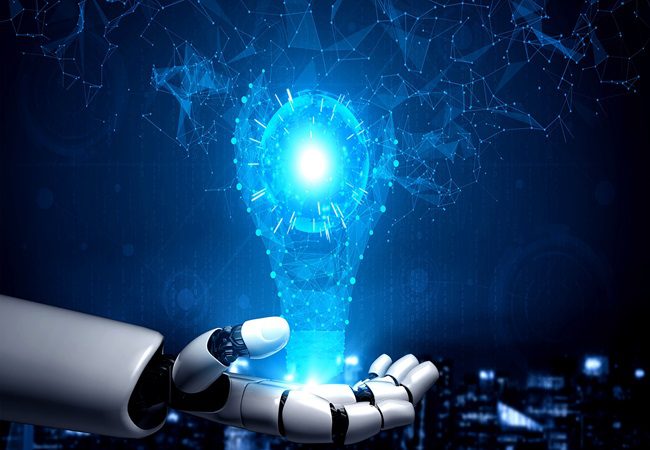Introduction:
In the ever-evolving landscape of the modern workforce, Artificial Intelligence (AI) is emerging as a transformative force, reshaping the job market and revolutionizing the way we work. As industries adopt AI technologies to streamline processes and boost efficiency, the future of work is undergoing a profound transformation. This article explores the impact of AI on the job market, examining how it is influencing job roles, skills in demand, and the overall dynamics of work in the 21st century.
AI and Job Roles:
A Paradigm Shift:
The integration of AI in the workplace is leading to a fundamental shift in the nature of job roles. Automation, driven by AI technologies, is automating routine and repetitive tasks, allowing human workers to focus on more complex and strategic responsibilities. As a result, certain job roles are evolving, while entirely new ones are emerging.
Automation of Routine Tasks:
AI’s capacity to automate routine tasks is evident across various industries. From data entry and customer service to manufacturing processes, repetitive tasks are being efficiently handled by AI systems. This not only enhances operational efficiency but also allows human workers to engage in tasks that require critical thinking, creativity, and emotional intelligence.
Skills in Demand:
A Shift Towards Tech Proficiency:
The changing job landscape is placing a premium on tech proficiency and digital skills. As AI becomes an integral part of the workplace, there is a growing demand for individuals who can understand, manage, and collaborate with AI systems. Skills such as data analysis, machine learning, and proficiency in AI-related tools are becoming increasingly valuable.
The Rise of Digital Literacy:
Digital literacy is emerging as a foundational skill in the AI-driven job market. The ability to navigate digital platforms, use collaboration tools, and adapt to evolving technologies is essential. Organizations are seeking individuals who can leverage AI tools to enhance productivity and contribute to the digital transformation of the workplace.
AI and Job Creation:
Fostering Innovation:
While AI is automating certain tasks, it is also contributing to job creation by fostering innovation and the development of new industries. As AI technologies advance, the need for skilled professionals to design, implement, and manage these technologies is growing. This has led to the creation of entirely new job categories.
AI-Related Job Opportunities:
The demand for AI-related roles is on the rise. Positions such as AI specialists, data scientists, and machine learning engineers are becoming integral to organizations investing in AI. Additionally, the need for professionals who can interpret and communicate insights derived from AI systems is creating opportunities in fields like AI ethics, explainability, and policy development.
Remote Work and AI Collaboration:
The rise of remote work is further accentuated by the collaboration between human workers and AI technologies. Virtual assistants, chatbots, and AI-driven collaboration tools have become essential in facilitating communication and task management in remote work environments. This collaborative synergy is reshaping the way teams operate and collaborate across geographical boundaries.
Facilitating Remote Collaboration:
AI-driven collaboration tools streamline communication by automating routine tasks like scheduling, document sharing, and data analysis. This not only enhances efficiency but also allows remote teams to collaborate seamlessly. The integration of AI in remote work is breaking down barriers and creating a more interconnected and efficient work environment.
Ethical Considerations in AI-Driven Workplaces:
As AI becomes more ingrained in the workplace, ethical considerations come to the forefront. Issues such as bias in algorithms, transparency in decision-making processes, and the ethical use of AI technologies demand careful consideration. Striking a balance between innovation and ethical considerations is crucial to building trust in AI-driven workplaces.
Addressing Bias in Algorithms:
Bias in AI algorithms, whether unintentional or inherent, can perpetuate inequalities. Organizations must actively address bias in AI systems to ensure fair and equitable outcomes. This involves ongoing efforts to identify and rectify biases during the development and training phases, emphasizing the importance of diversity and inclusion in the AI workforce.
Reskilling and Upskilling:
Navigating the Future:
The evolving job market calls for a proactive approach to reskilling and upskilling. As AI technologies reshape job roles, individuals need to adapt to stay relevant. Continuous learning and acquiring new skills become essential for navigating the ever-changing job market.
Lifelong Learning in the Digital Age:
Lifelong learning is becoming a cornerstone of career resilience. Individuals need to embrace a mindset of continuous learning, seeking opportunities to acquire new skills, stay updated on industry trends, and adapt to emerging technologies. This not only enhances employability but also fosters a culture of innovation and adaptability.
AI and the Gig Economy:
Flexibility and Innovation:
The gig economy, characterized by short-term and freelance work arrangements, is experiencing a symbiotic relationship with AI. AI platforms facilitate the matching of gig workers with tasks and projects, creating a more flexible and dynamic job market. The gig economy provides opportunities for individuals to leverage their skills on a project basis, aligning with the evolving nature of work.
Gig Workers and AI Platforms:
AI-driven platforms are connecting gig workers with opportunities, automating the matchmaking process based on skills, preferences, and project requirements. This not only enhances efficiency in the gig economy but also allows organizations to tap into a diverse pool of talent for specific tasks and projects.
AI and Workplace Dynamics:
Enhancing Employee Experience:
The integration of AI is not just about automating tasks; it’s also about enhancing the overall employee experience. AI-driven technologies can personalize learning and development opportunities, improve employee well-being, and create a more inclusive workplace.
Personalized Learning and Development:
AI algorithms can analyze individual employee performance and learning preferences to tailor personalized training programs. This ensures that employees receive relevant and targeted development opportunities, fostering continuous growth and skill enhancement. The result is a workforce that is more engaged and equipped with the skills needed for the evolving job market.
Conclusion:
The future of work is intricately linked with the transformative power of Artificial Intelligence. As AI reshapes job roles, demands new skills, and fosters innovation, individuals and organizations alike must embrace a proactive approach to navigate this evolving landscape. The synergy between AI and human capabilities holds the promise of a more efficient, dynamic, and inclusive future of work. By fostering a culture of continuous learning, adapting to ethical considerations, and embracing the collaborative potential of AI, we can collectively shape a future where technology and human ingenuity coalesce to redefine the way we work.

































